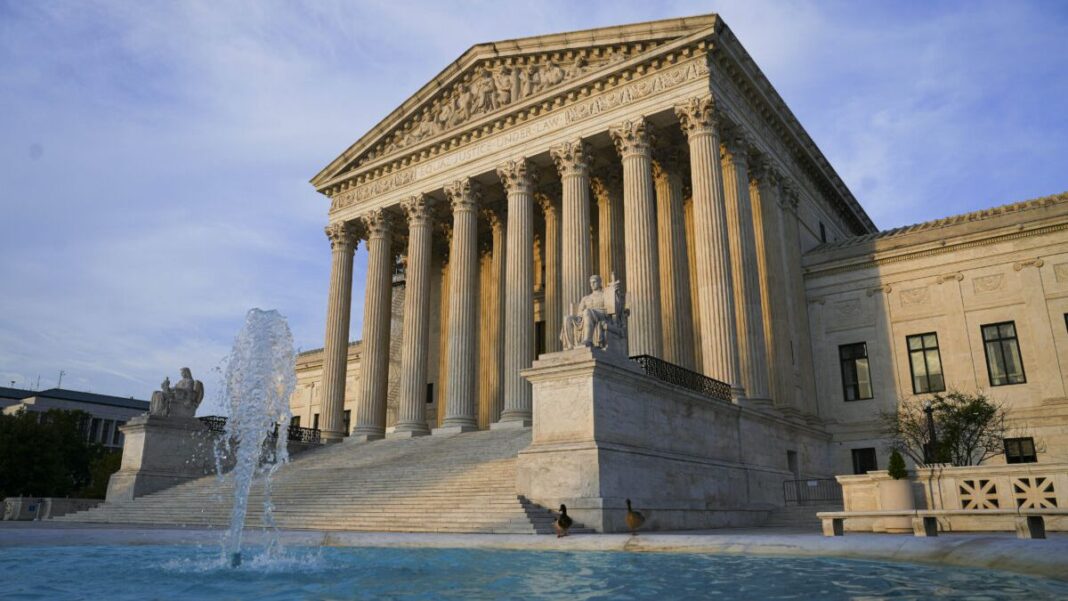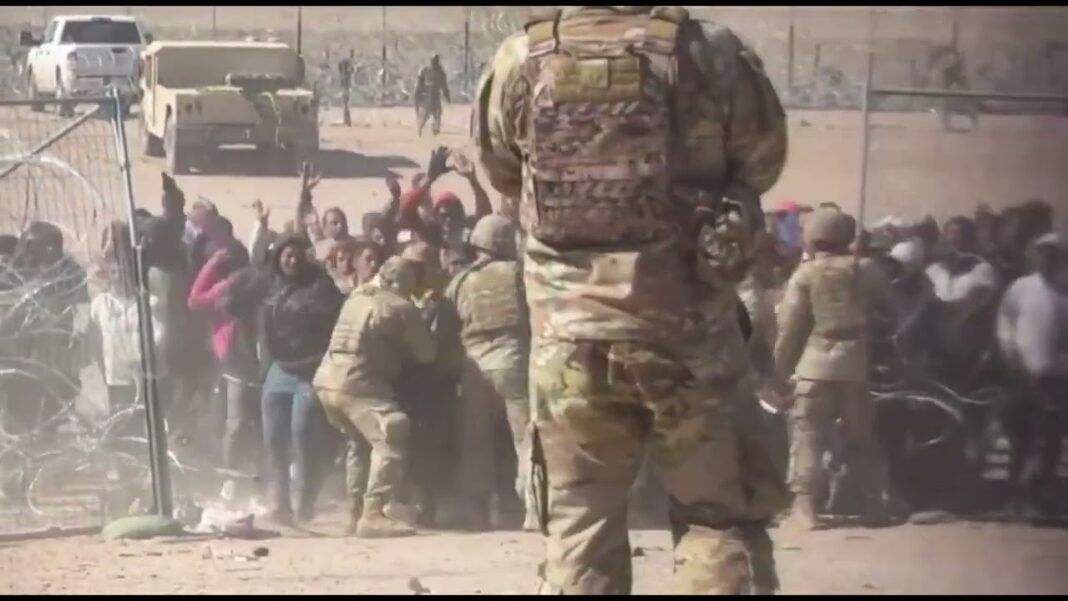Justices issue new directive.
The U.S. Supreme Court on April 23 directed the U.S. Department of Justice to reply to a man convicted in the Jan. 6, 2021, breach of the U.S. Capitol.
Justices said the department’s response to Russell Alford is due May 23.
Mr. Alford was convicted by a jury of four misdemeanor counts but is challenging two of the charges, arguing that they don’t apply to his conduct.
The charges should not have been brought because the laws on which they’re based bar disorderly and disruptive conduct in a Capitol building and in a restricted building, but Mr. Alford merely entered the Capitol and stood silently against a wall before exiting, the Supreme Court was told in a filing from Mr. Alford’s lawyers.
Click here to watch the full documentary “The Real Story of January 6 Part 2: The Long Road Home”
U.S. District Judge Tanya Chutkan, an appointee of President Barack Obama, originally rejected Mr. Alford’s request to dismiss the counts, finding that his “mere presence inside the Capitol disturbed the public peace or undermined public safety.”
A federal appeals court, after reviewing the rejection, upheld it in January. While Mr. Alford was “neither violent nor destructive … a jury could rationally find that his unauthorized presence in the Capitol as part of an unruly mob contributed to the disruption of the Congress’s electoral certification and jeopardized public safety,” the ruling stated.
“The court should grant review because this case presents an important question of federal statutory interpretation,” Mr. Alford’s lawyers wrote to the Supreme Court, describing the appeals court ruling as “establish[ing] a slippery and counter-textual standard for criminalizing conduct in settings for political activity.”
One of the laws, 18 U.S.C. § 1752(a)(2), bars people from “knowingly, and with intent to impede or disrupt the orderly conduct of government business or official functions, engages in disorderly or disruptive conduct in, or within such proximity to, any restricted building or grounds when, or so that, such conduct, in fact, impedes or disrupts the orderly conduct of government business or official functions.”









